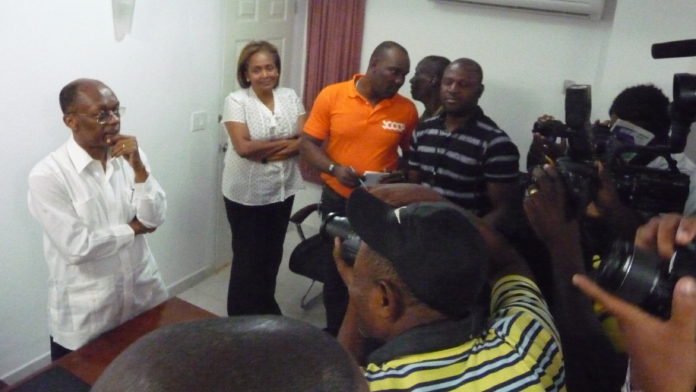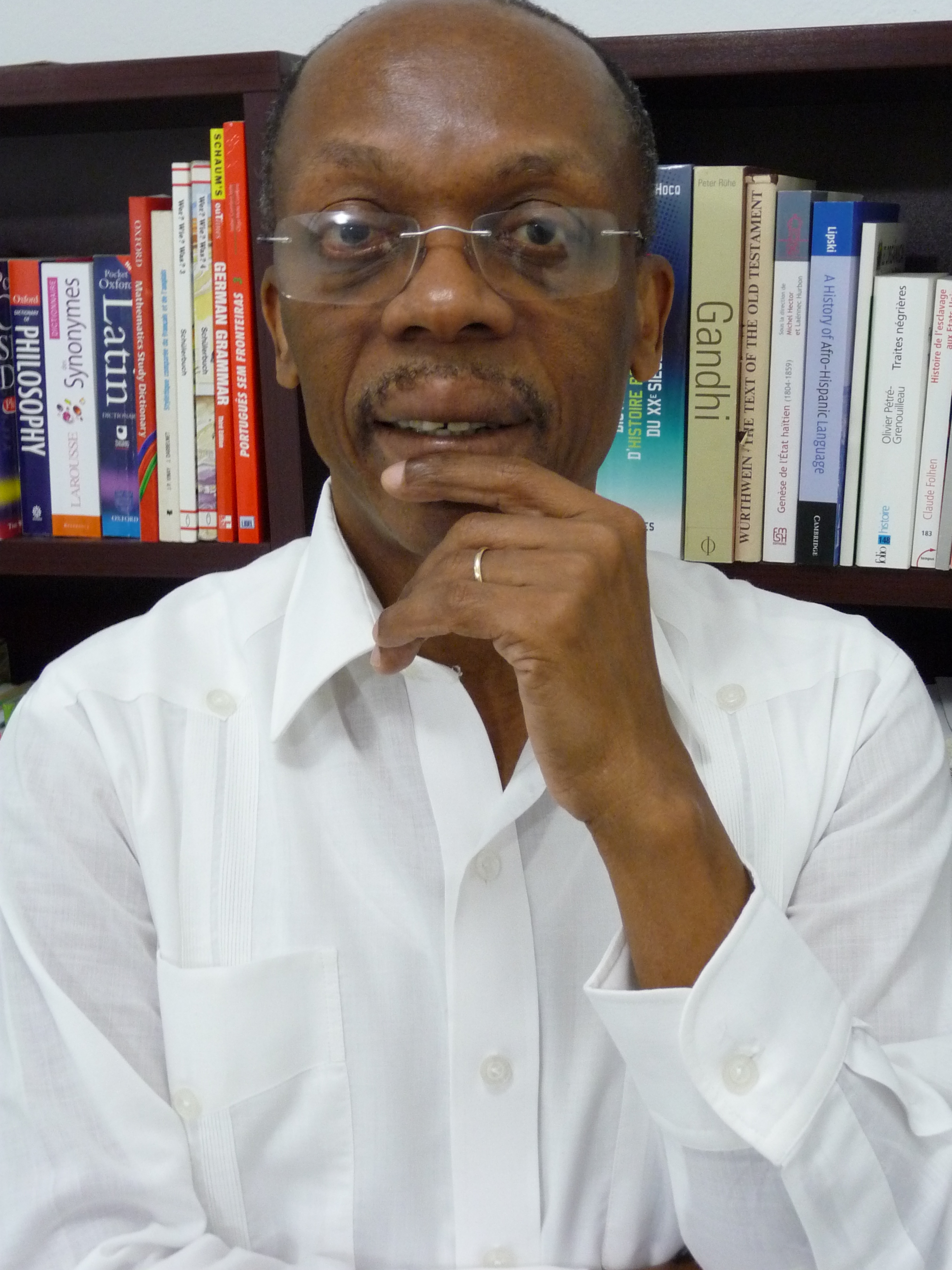
Former President Jean-Bertrand Aristide called for national unity to tackle the problem of hunger in Haiti and thanked the Haitian people for their massive show of solidarity the day before when thousands joined him in a slow procession through Port-au-Prince back his residence from making a court deposition on May 8.
“Yesterday, was an ordinary day, but you made it into an extraordinary day, and I say thank you,” Aristide said on May 9 to about 20 journalists assembled in his home’s spartan study, where he has spent most of the past two years since his return to Haiti from a seven year exile on Mar. 18, 2011. Since that day, when thousands also accompanied him home, it was the first time he has spoken publicly.
In the course of his 40 minute talk, Aristide also thanked Haitians in Haiti’s rural provinces, its diaspora, the police force, his Lavalas Family party, and “all the other political parties.”
Speaking directly to the Haitian people, he obliquely tweaked the government of President Michel Martelly, but refrained from any direct criticism or policy discussion. “I know you have a $1.50 problem,” he said referring to the illegal tax that the Martelly government levies on every money transfer Haitians make to folks back home. “I know you have a problem in the sending of money. I know you have problems in the question of telephone calls [where a 5 cent or 1 gourde tax is placed on every minute of international calls]… I’m not going to get into the problems. I’m not going to get into making criticisms.”
Instead, he spoke about his university, his emotions after the earthquake, and his love for the Haitian people.

“I want to say thank you for what you have taught me,” he said. “Yesterday I learned a lot. In the two years since I’ve returned, I’ve been learning at the school of the Haitian people.”
He reported that his medical school began with 126 students, but that “this year it opened with 254 students, while there are 115 who are in their second year of medical school.” He also said that the University of the Aristide Foundation (UNIFA) now has a nursing school with 73 students and a developing computer school.
“All the students this year have partial scholarships,” he said. “When in a university a student pays 90,000 gourdes (US$2,118) for the year, with us in the first year they pay 30,000 gourdes (US$706), one third.”
“We’d like to do more, but we don’t have the means,” he said. “Whatever little bit I can do for education, I do it.”
To the consternation of many of his followers that he has not spoken out, he replied: “Nobody forced me not to speak. I don’t take orders. Like the Haitian people, I’m my own boss. I speak when I have to. Nobody can stop me from talking.”
As for staying in his home, he said: “I didn’t leave with my body, but I left with my heart. My heart’s eyes sees far. My heart’s eyes see what is happening in the provinces and in Port-au-Prince.”
He said his trip through Port-au-Prince had reminded him of all the suffering and damage after the earthquake and “yesterday I relived it.”
“I know what it means for you who have not been able to escape the pain of goudougoudou,” he said, using Haitians’ onomatopoetic term for the seism. In typical form, he rattled off various statistics about the damage done by the earthquake.
“I saw a people that even though they have suffered under rubble, they have a pride, a dignity, a determination, a character, and they want to live, they have to live,” he said. “Despite being deceived, they still stand.”
Most of his declaration was a call for Haitians to come together to fight hunger, a message sparked by an old woman who had pointed to her belly during the march the day before. “When I eat, I’m ashamed as I think of people who cannot eat,” he said.
Aristide called on politicians to “depoliticize” hunger to fight it, and to come together.
“The Fanmi Lavalas is growing and becoming stronger and more powerful,” he said. “If there are free, honest, democratic elections, it is likely that it will win big.”
But Fanmi Lavalas is also “fooling itself” if it thinks “it is going to resolve the problem of hunger by itself. That’s false. It cannot.” He also said that the Martelly government, “with all the respect that I have for the current authorities,” could not solve it alone either.
“The problem of hunger demands that we find a formula where people and parties who are in power and those who are not, overseas Haitians with those here, can dialogue together with respect so we can solve this hunger question because it is no joke.”









